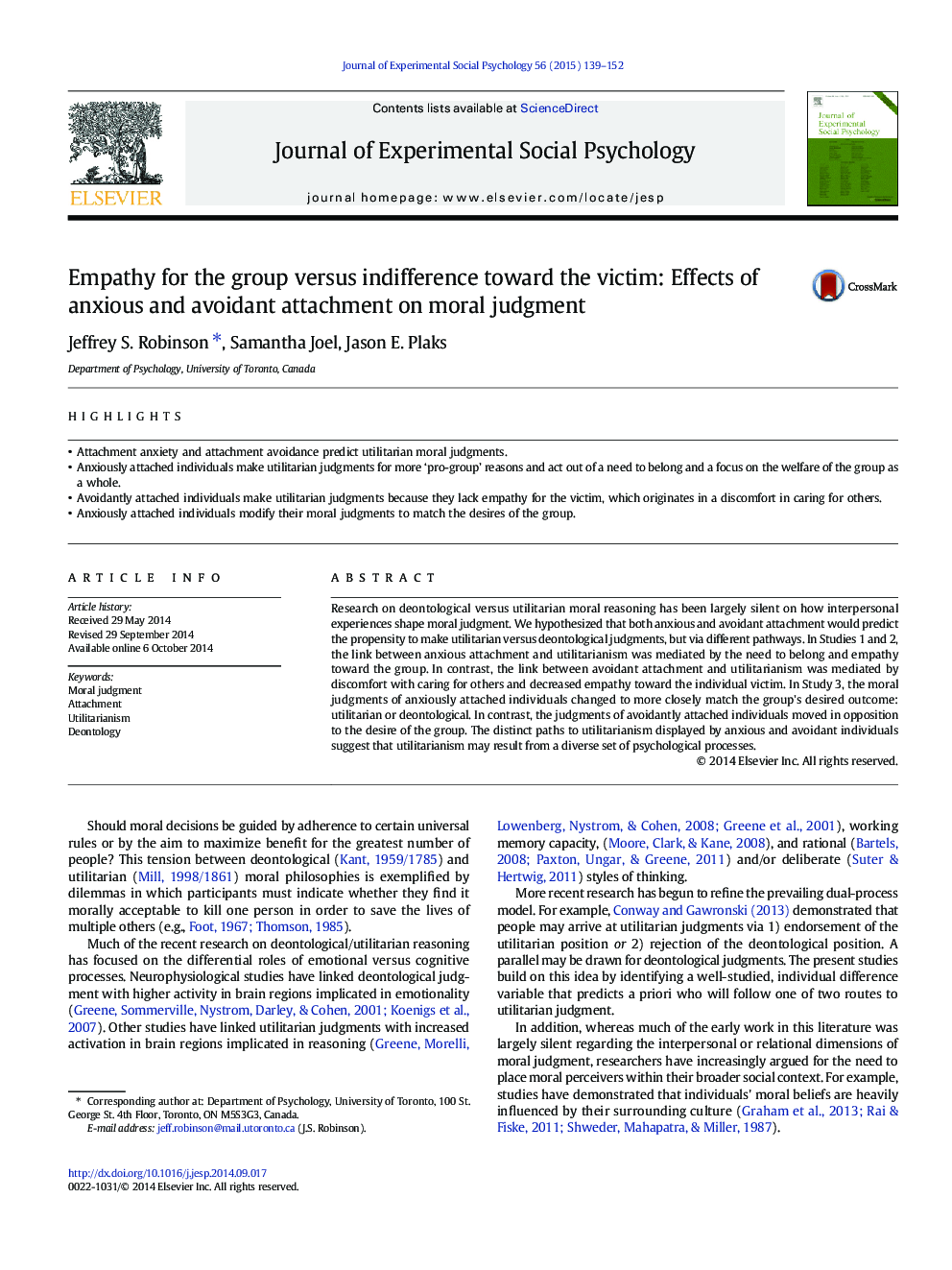| Article ID | Journal | Published Year | Pages | File Type |
|---|---|---|---|---|
| 947731 | Journal of Experimental Social Psychology | 2015 | 14 Pages |
•Attachment anxiety and attachment avoidance predict utilitarian moral judgments.•Anxiously attached individuals make utilitarian judgments for more ‘pro-group’ reasons and act out of a need to belong and a focus on the welfare of the group as a whole.•Avoidantly attached individuals make utilitarian judgments because they lack empathy for the victim, which originates in a discomfort in caring for others.•Anxiously attached individuals modify their moral judgments to match the desires of the group.
Research on deontological versus utilitarian moral reasoning has been largely silent on how interpersonal experiences shape moral judgment. We hypothesized that both anxious and avoidant attachment would predict the propensity to make utilitarian versus deontological judgments, but via different pathways. In Studies 1 and 2, the link between anxious attachment and utilitarianism was mediated by the need to belong and empathy toward the group. In contrast, the link between avoidant attachment and utilitarianism was mediated by discomfort with caring for others and decreased empathy toward the individual victim. In Study 3, the moral judgments of anxiously attached individuals changed to more closely match the group's desired outcome: utilitarian or deontological. In contrast, the judgments of avoidantly attached individuals moved in opposition to the desire of the group. The distinct paths to utilitarianism displayed by anxious and avoidant individuals suggest that utilitarianism may result from a diverse set of psychological processes.
